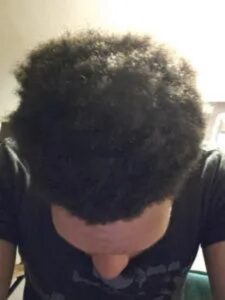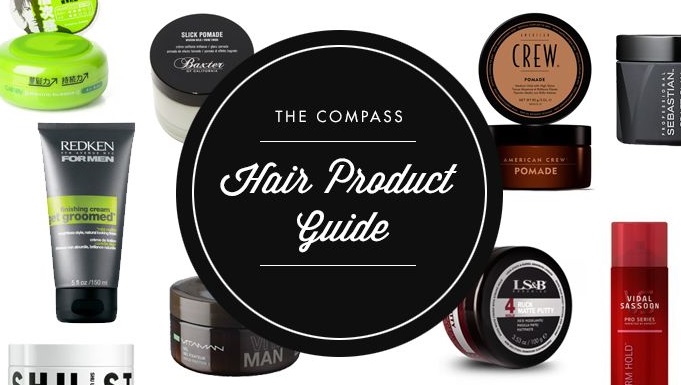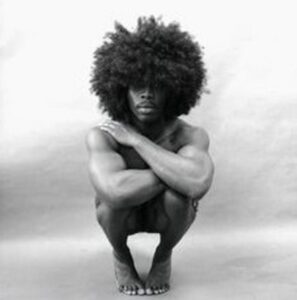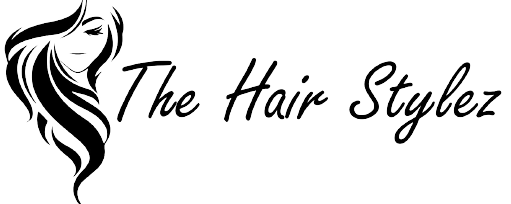BLACK MENS HAIR CARE GUIDE: THE ESSENTIAL GUIDE
BLACK MENS HAIR CARE GUIDE, You’re concerned about the health of your locks. To save time, you may skip the men’s grooming department or lengthy Google searches to get the best hair care and style products for curly, dry hair that you can find.
Our best hair care ideas (with examples) will be shared in this article to help you decide and streamline your daily routine.
First and foremost,

Reduce your frequency of shampooing! Even though you’ve heard it before, you should continue to shampoo your hair on a daily basis to remove product buildup and grease (more on that later). Perhaps the advice has never been made to you before, and you’re perplexed as to why. Here’s the short answer: it’s all because of a single, harmful chemical.
SLS, or sodium lauryl sulfate, is a common ingredient in over-the-counter shampoos. It’s a hair detergent that cleans, but it also removes the natural oils produced by your scalp to protect your hair from damage.
Overuse of SLS (such as daily shampooing) will make your hair dry and brittle, and no one wants their hair to feel like a Brillo pad.
Solution: Use an SLS-free shampoo only twice a week and limit your shampooing to that frequency.
Read Also: 9 Cool Natural Hair & Beard Styles For Black Men
Number two advice
Every day, apply moisturizer! During the course of the day, your hair naturally dries out. Dry air in the fall, heating in the winter, or hats in the summer or spring—it’s a constant fight to keep those locks smooth. But you have to find the source of the problem!
To keep hair smooth and manageable, hydrate the scalp as well as the hair itself.
Solution: Use a rinse-out conditioner to rehydrate your scalp and hair even if you don’t shampoo (but especially if you do).

Any oil or oil combination (even sweet almond or coconut oil) can use straight on the scalp as an alternative to our award-winning Daily Hydrator.
To get the greatest effects, make sure to apply it evenly throughout your scalp and hair.
It doesn’t take much to make a big difference!
Number three is a suggestion.
Pick a look that won’t require a lot of upkeep! The baldy or a low caesar might appear to be your only alternatives at times. Take proper care of your hair, and depending on your hair type, you’ll be able to wear waves, short curly styles, or even longer styles if you do it correctly.
Finding something that works for you or consulting with a professional groomer can help. You can always go back to the low cut, but unless you (controlled) experiment, you’ll never know whether you’ll find a better look–something that really makes an impact.
Just be careful not to be late for work as a result!
Fourth recommendation
Decide on a styling product that works for you! You’ll recall that we stated we’d return to this topic. What we have available at our local drugstore is either not design for our hair type or contains grease to make items lay flat. That’s the unpleasant reality. You’re doing nothing good for your hair in any of these situations.
Keep an eye out for products that include mineral oil or petrolatum, since these may dry your curly hair and cause it to shine uncontrollably. If you’re shopping ethnically, you’ll find more curly-hair-friendly alternatives.
BLACK CULTURE AND THE LINK BETWEEN IDENTITY AND HAIR

BLACK MEN’S HAIR CARE GUIDE, Hairstyles have always been a way for black women to show their beauty. Hairstyles ranging from the “fro” to braids to hair wraps show how Black culture has evolved over time, with more Black women now appreciating the natural beauty of their own hair as a statement of their identity. It’s not without debate, though. For decades, black women’s beauty. Particularly their hair has been a contentious issue, dating back to the Civil Rights Movement and beyond.
There’s been a resurgence of interest in the relationship between hair and black identity in recent months. After releasing a new ad campaign, Shea Moisture, a black-owned hair business, has found itself at the center of this argument. Ever since it was found, the firm has focus on making natural hair care products for African-American women of various hair kinds, from curly to straight to wavy to thick. While providing Black women with items that are typically difficult to obtain through traditional retail channels. The company has long taken pride in bridging the racial beauty gap by normalizing and increasing awareness of Black beauty.
When the firm recently ran a digital advertisement that included Non-Hispanic Whites (NHWs) while ignoring any representation. Their primary black clientele generated criticism from certain quarters. This commercial does not mention that black women have had a particularly difficult time historically. Social due to negative stereotyping because of their black hair.
BLACK MEN’S HAIR CARE GUIDE, Hair and cultural identity in the black community. Like with any issue that elicits strong feelings, one must understand in context. Many black women have force to cover their hair because of social oppression, maltreatment, and racial prejudice. Before liberation, hair wraps, for example. Were a symbol of oppression and a way for black women to reduce their attractiveness to their masters.
When black women first entered the industrial industry. They were to wear their hair in more analysis fashions. Straightened, process, and changed from their natural curl pattern/state). Even now, traditional black hairstyles like dreadlocks prohibited and can be a reason for termination in specific areas. Sectors, or jobs. There is no evidence of racial discrimination in the 11th circuit court’s decision. That prohibits “locs” on employees’ heads does not constitute a workplace policy.

